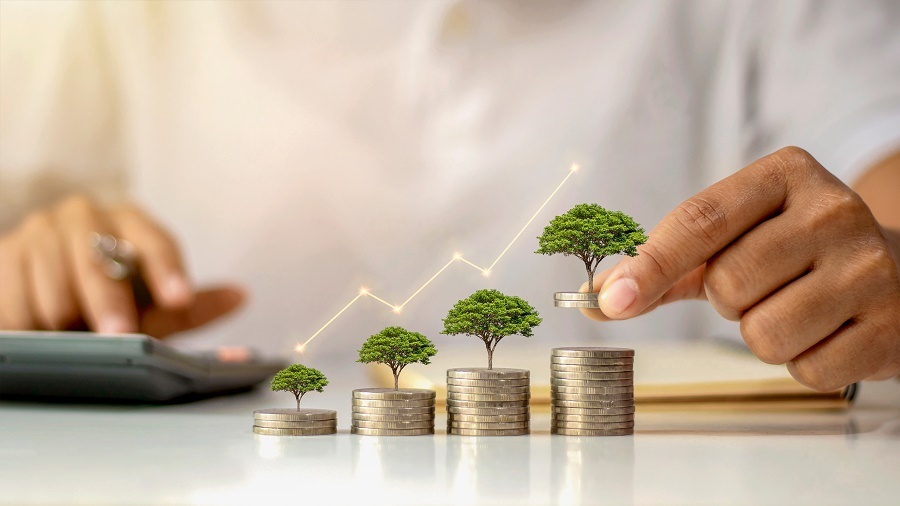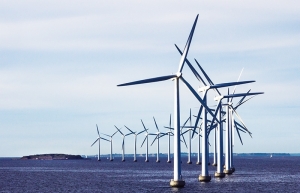Green credit initiatives urged to push ahead development
Nguyen Hung, CEO of TPBank, last week revealed that the lender is now in talks with a number of international partners in order to seek capital for growth in 2023. It occurs against the backdrop of growing interest from foreign financiers in a more profitable and tech-driven TPBank.
 |
| Green credit initiatives urged to push ahead development, photo: shutterstock |
In January 2022, TPbank inked a tripartite agreement with the Asian Development Bank (ADB) and DEG, a subsidiary of KfW, with a total value of up to $50 million to support female-owned businesses in Vietnam.
Hung also disclosed that TPBank has been able to cut its operational expenses by around 30 per cent thanks to the use of cutting-edge technological solutions. Approximately 95 per cent of the bank’s transactions are conducted through digital channels.
He further shared that he anticipates a growth in total assets for TPBank of at least 14 per cent in the next year.
In mid-December, Hanoi-headquartered lender MSB and Proparco, a development finance institution partly owned by the French Development Agency, inked a loan cooperation agreement worth $30 million with a 5-year term. This agreement is set to support financial resources for Vietnam’s green projects.
Proparco will provide MSB with technical assistance to enhance the bank’s capacity to implement an environmental, social, and governance (ESG) system up to the highest international requirements.
Nguyen Hoang Linh, CEO of MSB, highlighted that the bank’s pursuit of sustainable development takes into account benefits for consumers, shareholders, and the interests of other stakeholders. Proparco’s support is expected to increase MSB’s commitment to integrating ESG factors into its business strategy, enabling the bank to continue making constructive contributions to economic development.
“In addition to assisting with developing green projects in Vietnam, MSB will work with customers to provide practical financial solutions and offer guidance on achieving a sustainable equilibrium between economic, social, and environmental outcomes in their projects,” he said.
In the same vein, VPBank in late November signed a syndicated loan arrangement worth $500 million with five prominent financial institutions – Sumitomo, the ADB, the Japan International Cooperation Agency, ANZ Bank, and Maybank Securities.
The loan proceeds will then be utilised by the bank to finance small- and medium-sized enterprises (SMEs) and businesses led by women in the country.
VPBank could extend its credit facility to social projects dedicated to the improvement of fundamental infrastructure and Vietnam’s socioeconomic development.
“Banks have a vital role in mapping an inclusive and sustainable development path for Vietnam. ADB’s support for VPBank will help to ensure that businesses who had struggled to obtain finance will be able to invest in their future growth and share in the country’s prosperity,” noted ADB director-general for Southeast Asia, Ramesh Subramaniam.
VIB in November also completed disbursement of a $150 million loan from the International Finance Corporation. In March, it also mobilised a syndicated loan worth $260 million from the ADB and other lenders.
The funding comprises a direct ADB loan of $100 million and a syndicated loan of $160 million arranged by ADB and UOB from nine banks headquartered in China, Thailand, India, and elsewhere.
The syndicated loan agreement is expected to enhance access to finance for SMEs and individual businesses, and promote capital financing for quality housing for individual customers in Vietnam, VIB said in a statement.
Dr. Le Dat Chi, vice dean at the Faculty of Finance at the University of Economics in Ho Chi Minh City, believed that in the light of stringent capital mobilisation conditions in Vietnam, tapping into foreign cash would help to better fulfill banks’ demands, and therefore enhance their stability amid a volatile market.
“Increasing the current account and saving account ratio or mobilising savings deposits are often short-term, but these credit facility from foreign funds are typically long-term. Therefore, this helps banks maintain a more stable financial structure,” he said. “These indirect credit financing agreements are less complex than foreign direct investment, thus less lengthy paperwork or environmental consequences.”
Banks need to be subjected to stringent due diligence by international organisations before they can effectively tap into syndicated loans on the international market or issue foreign bonds with significant value and attractive interest rates.
An improved sovereign rating would be an added value for Vietnamese banks as well. Furthermore, foreign institutions are also in favour of sustainable development initiatives, such as loans for female-owned enterprises, SME expansion, or green and renewable projects, Chi said.
“Nonetheless, higher interest rate and fluctuating currency rate risks will present various challenges to Vietnam’s banks,” he added.
 | Banks roll out green credits for eco-friendly approach Since the adverse impacts of climate change are better understood, many financial institutions operating in Vietnam are taking bold steps to finance and facilitate green and eco-friendly loan packages as an essential part of their sustainable investment and net-zero pledges. |
 | Top institutions seek green credit answers International organisations and financial institutions are waiting for specific criteria for green projects to unlock financing flows that can support deployment of green and sustainable initiatives. |
What the stars mean:
★ Poor ★ ★ Promising ★★★ Good ★★★★ Very good ★★★★★ Exceptional
 Tag:
Tag:
Related Contents
Latest News
More News
- Cashless payments hit 28 times GDP in 2025 (February 04, 2026 | 18:09)
- SSIAM and DBJ launch Japan Vietnam Capital Fund (February 04, 2026 | 15:57)
- Banks target stronger profits, credit growth in 2026 (February 04, 2026 | 15:43)
- Vietnam on path to investment-grade rating (February 03, 2026 | 13:07)
- Consumer finance sector posts sharp profit growth (February 03, 2026 | 13:05)
- Insurance market building the next chapter of protection (February 02, 2026 | 11:16)
- NAB Innovation Centre underscores Vietnam’s appeal for tech investment (January 30, 2026 | 11:16)
- Vietnam strengthens public debt management with World Bank and IMF (January 30, 2026 | 11:00)
- Corporate bond market poised for stronger growth cycle (January 28, 2026 | 17:13)
- Vietnam's IPO market on recovery trajectory (January 28, 2026 | 17:04)






















 Mobile Version
Mobile Version